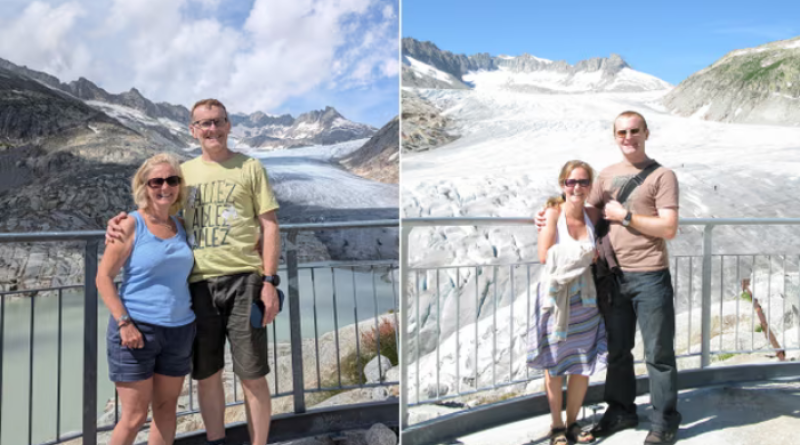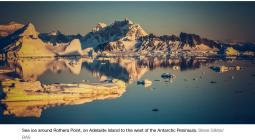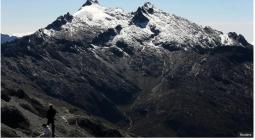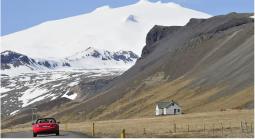‘It made me cry’: photos taken 15 years apart show melting Swiss glaciers

Duncan and Helen Porter took the first photo, right, in 2009 and revisited this year. Composite: Duncan Porter
A tourist has posted “staggering” photos of himself and his wife at the same spot in the Swiss Alps almost exactly 15 years apart, in a pair of photos that highlight the speed with which global heating is melting glaciers.
Duncan Porter, a software developer from Bristol, posted photos that were taken in the same spot at the Rhône glacier in August 2009 and August 2024. The white ice that filled the background has shrunk to reveal grey rock. A once-small pool at the bottom, out of sight in the original, has turned into a vast green lake.
“Not gonna lie, it made me cry,” Porter said in a viral post on social media platform X on Sunday night.
Porter and his wife had taken the original photo from a viewpoint by a “Wes Anderson-style” hotel that has since shut, and hung it up in their kitchen. Eager to return to the mountains and let their teenage daughters Maisie and Emily see the glacier, they took a camper van trip across Europe and set out to recreate the picture.
“But obviously the circumstance of this photo was drastically different,” said Porter. Helen Porter, a nurse, added: “I thought it was really unbelievable.”
The carbon pollution released by burning fossil fuels and destroying nature has heated the planet 1.3C since preindustrial times. In Europe, which has warmed twice as fast as the global average, hotter summers have forced people in mountainous regions to see slow-moving glaciers melt before their eyes.
Switzerland has lost one-third of its glacier volume since 2000, according to official statistics, and 10% has disappeared in the last two years alone.
“A lot of people, when they see something like that, they feel quite helpless,” said Porter, who sits on the committee of a local climate action group in the south-west of England. “But from my experience there’s a huge amount they can do.”
He said he did “not want to sound preachy” but pointed to local community projects as one of the “wonderful” ways in which ordinary people can get involved in climate action, along with pushing for systemic change through the ways they vote and shop.
The Intergovernmental Panel on Climate Change (IPCC) found that – in its worst-case scenario for global heating – “nearly all glacier mass” would disappear in the coming centuries in low latitudes, central Europe, the Caucasus, western Canada and the US, north Asia, Scandinavia and New Zealand.
The Rhône glacier has fared better than some others in Switzerland but has shrunk by about a quarter in the decade and a half between Porter’s two photos.
“It was a very impressive glacier,” said Sonia Seneviratne, a Swiss climate scientist and co-author of an IPCC report, who visited the glacier as a teenager. “It’s very sad to see those pictures because you see how large the changes have been.”
Users of X reacted with horror and heartbreak to Porter’s post, which has been viewed 3 million times, echoing the couple’s anguish. But the post also attracted a steady stream of comments from climate denying-accounts subscribed to X’s premium service, many of which were abusive and misrepresented established climate science.
Porter said he was aware that glaciers recede and grow over long timeframes but that many of the comments in his feed were inaccurate and based on dubious sources.
“These things are supposed to happen over really long time periods,” he said. “What people should focus on is the speed of change.”





